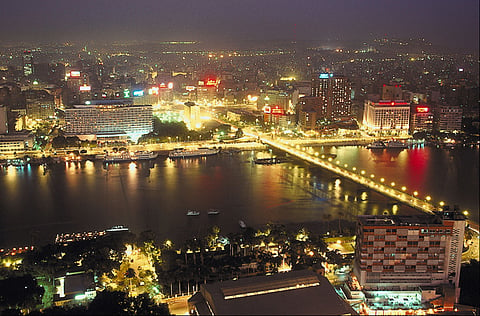Egypt unveils pay rises ahead of fresh subsidy cut
Austerity steps have secured a 12-billion-dollar loan from IMF to revitalise the economy

Cairo: The Egyptian government has announced pay rises ahead of new cuts in fuel subsidy as part of austerity measures aimed at revamping the economy and shoring up finances.
The parliament agreed this week to increase pensions by 15 per cent and giving two bonuses to civil servants as Egyptians are bracing for new hikes in prices of petrol and electricity. The increases in both salaries and fuel prices are due to take effect in July when the fiscal year begins in Egypt.
Caretaker Prime Minister Sharif Esmail said that the rises in pensions and government employees will cost the public budget about 60 billion Egyptian pounds (Dh12.33 billion).
Around 9 million pensioners and 7 million employees benefit from the latest pay rises.
“This will help the needy classes to cope with any increases in prices of services resulting from the [economic] reform programme,” Esmail said on Tuesday.
In 2016, Egypt floated its local pound and slashed state fuel subsidy as part of tough economic reforms that the government defended as necessary.
The steps unleashed hikes in prices of different goods and services, but secured the country a 12-billion-dollar loan over three years from the IMF.
Over the past days, Egyptian media carried reports about the subsidized prices of fuel products and their actual costs, apparently preparing the public for the planned subsidy cuts.
Several lawmakers have lauded the approved pay rises, and backed economic reforms.
“By giving bonuses to government employees and increasing pensions, the state tries to ease the burden on citizens as part of the social protection programme that goes in tandem with economic reforms,” pro-government MP Mohammad Hamed said in a statement.
Some economists, however, urged the government to take steps in order to help private sector workers and millions of Egyptians engaged in informal economy such as street vendors.
“The numbers of working Egyptians are more than 26 million, including only 7 million in the state administrative apparatus,” Fakhri Al Feqi, an ex-IMF advisor, said. The rest are employed by private sector, or work in unregistered economic activities.
“These workers need to be taken into account and their incomes boosted to cope with the rising costs of living,” Al Feqi told private newspaper Al Youm Al Saba.
He proposed that employers be encouraged to increase their employees’ salaries in return for getting tax breaks from state authorities.
“The private sector will not increase its workers’ wages without getting incentives from the government.”
Many in this country of nearly 95 million people are struggling to make both ends as they feel the pinch of painful economic reforms.
In an attempt to cushion the knock-on effects of the reforms, the government has taken a string of steps. They include a support programme called “Interdependence and Dignity” designed to assist the poor Egyptians. Around 2.2 million families of nearly 10 million Egyptians benefit from the scheme, according to official figures.
The government is also expected to increase the value of subsidized food offered through a decades-old ration system.
President Abdul Fattah Al Sissi has repeatedly said that reforms are necessary to heal the Egyptian economy battered by the unrest that followed the 2011 uprising. He admitted Wednesday evening that the reforms have been “very harsh” and expressed appreciation to Egyptians for their endurance.
Last month, the government hiked up fares of the Cairo metro by up to 250 per cent, a step that triggered rare protests, which prompted authorities to beef up security inside and outside the subway stations.
Egypt’s planned pay rises and increases in energy prices come against a background of street protests in Jordan against a draft tax bill and rises in fuel prices.
Sign up for the Daily Briefing
Get the latest news and updates straight to your inbox



